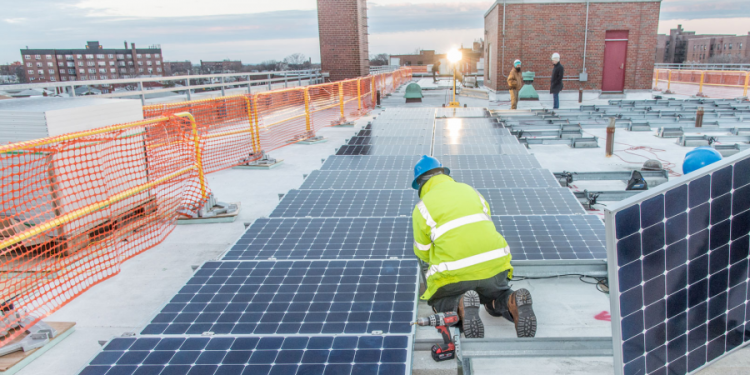Cities and towns around the United States have been increasing their recycling recovery rates, and the amount of municipal waste they have been able to redirect away from dumpster rentals going to the nearest landfill, over the previous two decades.
National recycling figures has risen by more than 25% since the start of the millennium, with year-on-year increases boosting the total to just under 68 million tonnes in 2015.
Innovative recycling programmes that encourage individual action and environmental stewardship are being pioneered by a few forward-thinking city projects. Eventually, it is hoped that these programmes can be used by other states and countries to help reduce the amount of waste that is dumped into landfills.
New York, NY
It’s not a surprise that New York is one of the cities that is looking ahead with innovative waste management practices.
As part of the OneNYC program, New York City has set a lofty goal of recycling 100 percent of its waste by 2030. Collaborative zero waste standards were developed and implemented in 2016 by a wide range of stakeholders to encourage planners, dumpster rental companies, architects, developers and city authorities as well as garbage haulers to work together on improving existing waste management systems and building new ones.
Residents of New York City, as well as all types of institutions and agencies, can take advantage of free signage, decals, and information about the recyclable materials that are accepted. Along with the monthly Zero Waste email newsletters, residents and business owners who sign up will also receive the DSNY’s Zero Waste email newsletter, which will keep them informed of any new developments or changes to the guidelines that may occur, such as any changes to the city’s Organic Recycling Laws.
Los Angeles, CA
The goal of Los Angeles’s Solid Garbage Integrated Resources Plan (commonly known as Zero Waste Plan) is to achieve 90 percent waste diversion by 2025, and to reach 97 percent by 2030.
The strategy was launched in 2013 and emphasises the role of both manufacturers and consumers in the effort to improve the environment. As part of a public engagement pogram, over 3,000 stakeholders were brought together to formulate the core concepts.
San Francisco, CA
San Francisco established ambitious zero-waste targets in 2002 and 2003, with the latter setting a goal of 75 percent diversion by 2010 & zero trash by 2022, respectively, making it one of the world’s first cities to implement such laws. In 2013, the city implemented one of a first composting collection programmes in the United States, as well as a ban on single-use plastic bags.
It is now possible to reduce trash while also increasing recycling through a number of different innovative programs and policies, including the Zero Waste Textile Initiative, Construction and Demolition Ordinance, Cigarette Litter Abatement Ordinance. Additional trash management signs that can be customised are available for organisations looking to streamline their waste management procedures.
Seattle, WA
After making its commercial recycling programme mandatory in 2013, Seattle implemented a zero-waste policy in 2010 that intends to develop, manage products & processes to eliminate the need for landfill or incineration. Additional resources are made available by the city to assist both businesses and residents in recycling more efficiently.
There are also apps like Recycle-It, which allows consumers to set reminders and collection dates, as well as providing information on recycling, composting and waste services. There are also smaller garbage cans for recycling and composting, and local composting facilities, to ensure that materials were separated correctly and repurposed correctly.
Portland, OR
The City of Portland wants to improve material recovery rates to 90 percent by 2030, and it is involving citizens and companies in a variety of activities, including comprehensive youth education programme, to achieve this goal. Schools and young adult organisations can take use of a comprehensive collection of resources aimed to improve awareness of recycling, climate change, dumpster rentals and composting as a whole.
The goal is to ensure that the future generations have the knowledge and skills necessary to reach true zero waste.
Boston, MA
Boston’s Zero Waste program was launched in 2018 and aims to achieve 80% of waste from landfills by 2030.
Offering an abundance of information for citizens and companies and a variety of practical toolkits designed that help residents repair, reduce, or recycle things have helped the city greatly improve its image in recent years for its recycling & material recovery efforts.
Additionally, in 2018, the city of Boston passed a plastic bag legislation, which mandates that stores only provide customers with reusable bags, recyclable paper bags, or compostable checkout bags, and that Boston retailers no longer carry single-use plastic bags with handles.
















